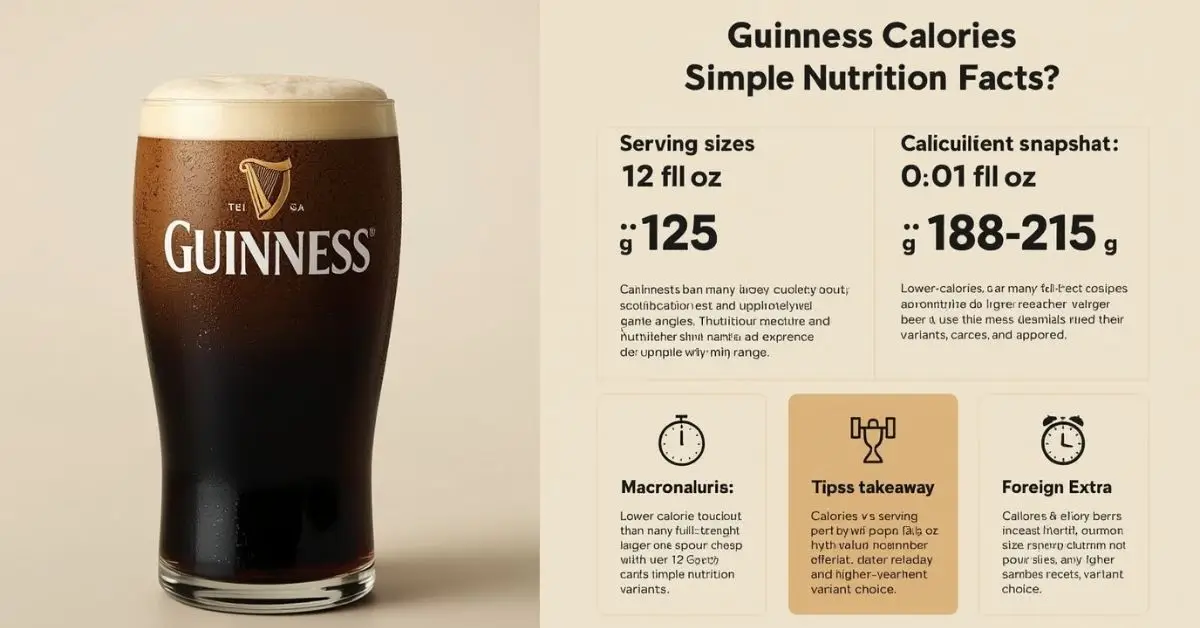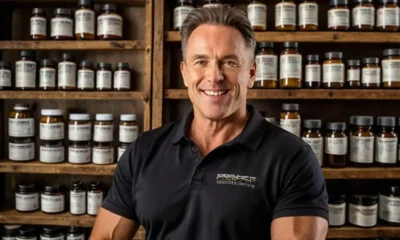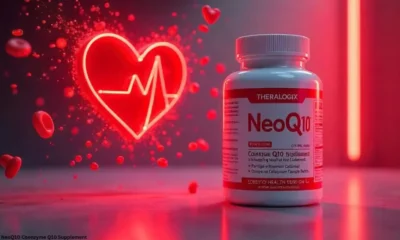GENERAL
Waterless Skincare: The Future of Potent, Eco-Friendly Beauty

Waterless skincare is transforming the beauty industry by offering potent, sustainable, and highly effective alternatives to traditional skincare routines. As consumers become more conscious of what they put on their skin and how it impacts the planet, waterless skincare has emerged as a revolutionary approach that delivers concentrated benefits without unnecessary fillers. In this comprehensive guide, we’ll explore what waterless skincare is, its advantages, how it compares to conventional products, and how you can seamlessly integrate it into your daily regimen.
What Is Waterless Skincare?
Waterless skincare refers to products formulated without added water, relying instead on concentrated, natural ingredients such as oils, butters, waxes, and botanical extracts. Unlike traditional skincare, where water can make up 60–80% of a product’s composition, waterless skincare maximizes the potency of active ingredients and minimizes the need for preservatives. This innovative approach, rooted in K-beauty traditions, is designed to deliver more effective results while supporting sustainability efforts.
Why Is Water Used in Traditional Skincare?
In many traditional skincare preparations, water is the primary component. It acts as a solvent, helping to dissolve other ingredients and facilitate their absorption into the skin. However, water also serves as a filler, diluting the concentration of beneficial actives and requiring the addition of preservatives to prevent bacterial growth. While water-based products offer lightweight hydration, they often lack the intensity and longevity found in waterless alternatives.
The Advantages of Waterless Skincare
Potent, Concentrated Formulas
Rich in active components, waterless skincare solutions offer a greater concentration of antioxidants and nutrients per application. This means you get more value and efficacy from each product, whether it’s a balm, serum, or oil.
No Need for Preservatives
Without water, there’s less risk of bacterial contamination, so waterless skincare products often skip harsh preservatives. They are therefore perfect for anyone looking for clean beauty solutions and those with sensitive skin.
Longer Shelf Life
Waterless formulations are less prone to spoilage, giving them a longer shelf life than their water-based counterparts. You can enjoy your favorite products for extended periods without worrying about them going bad.
Eco-Friendly and Sustainable
By removing water from the equation, these products reduce the strain on global water resources and often require less packaging. Their concentrated nature also means smaller, lighter containers, which lowers transportation emissions and waste.
Suitable for All Skin Types
Waterless skincare can be tailored to meet the needs of dry, sensitive, oily, or combination skin. The absence of fillers and the inclusion of nourishing oils and butters make these products highly versatile and effective for a range of skin concerns.
Key Ingredients in Waterless Skincare
Waterless skincare harnesses the power of natural, plant-based ingredients. Common components include:
- Botanical oils (jojoba, rosehip, argan): Deeply nourish and protect skin
- Shea butter: Rich in fatty acids for intense hydration
- Coconut oil: Moisturizes and provides antimicrobial benefits
- Vitamin E: Fights free radicals and supports skin healing
- Essential oils: Add fragrance and therapeutic properties
- Olive-derived extracts: Support barrier repair and hydration.
These ingredients are stable and effective without water, making them ideal for concentrated skincare formulations.
Waterless Skincare vs. Water-Based Skincare: A Comparison
Below is a comparison chart to help you understand the differences and unique benefits of waterless skincare versus traditional water-based products.
| Feature | Waterless Skincare | Water-Based Skincare |
| Main Ingredient | Oils, butters, botanical extracts | Water (aqua) |
| Concentration of Actives | High | Moderate to low |
| Preservatives Needed | Minimal or none | Required |
| Shelf Life | Longer | Shorter |
| Sustainability | High (less water, less packaging) | Lower (more water, more packaging) |
| Texture | Rich, balm-like, or oil-based | Light, gel, or cream-based |
| Skin Suitability | All skin types, especially dry/sensitive | All skin types, especially oily/combination |
| Environmental Impact | Lower (conserves water) | Higher (uses more water) |
| Product Size | Smaller, travel-friendly | Larger, bulkier |
| Hydration Source | Plant oils, butters, humectants | Water, glycerin, hyaluronic acid |
How Waterless Skincare Works for Different Skin Types
Dry Skin
Oil-based balms and serums provide deep nourishment, restoring the moisture barrier and leaving skin soft and supple.
Sensitive Skin
With fewer preservatives and no harsh fillers, waterless skincare minimizes irritation and soothes delicate complexions.
Oily Skin
Lightweight oils in waterless formulations help balance sebum production without clogging pores, making them suitable for those prone to breakouts.
Combination Skin
Versatile oil-based treatments hydrate dry areas while controlling shine in oil-prone zones, offering a balanced solution for combination skin.
The Environmental Impact of Waterless Skincare
Water is used extensively in the beauty business for both product development and production. Waterless skincare addresses this by:
- Reducing water usage in production
- Lowering the need for plastic packaging
- Minimizing transportation emissions due to smaller, lighter products
- Supporting a more sustainable, eco-conscious beauty routine.
By choosing waterless skincare, you contribute to conserving a vital natural resource and reducing your overall environmental footprint.
Types of Waterless Skincare Products
The waterless skincare movement has inspired a diverse range of products, including:
- Balm cleansers: Remove pollutants and makeup without depleting natural oils
- Serums: Deliver concentrated nutrients and antioxidants
- Moisturizing balms and oils: Lock in hydration and repair the skin barrier
- Lip balms: Provide long-lasting moisture and protection
- Powder masks and exfoliants: Activate with a few drops of hydrosol or toner.
These products are designed to be effective, gentle, and suitable for daily use.
How to Build a Waterless Skincare Routine
Ready to make the switch? Here’s a sample routine to get you started:
Oil-Based or Balm Cleanser
Begin with a waterless cleanser to dissolve makeup and impurities while nourishing your skin.
Waterless Serum
Apply a concentrated serum packed with antioxidants or active ingredients tailored to your skin’s needs.
Moisturizing Balm or Oil
Seal in hydration with a rich balm or facial oil. Look for formulas containing shea butter, coconut oil, or botanical oils.
Lip Balm
Finish with a waterless lip balm to keep your lips soft and hydrated.
Optional: Hydrosol Mist
If you crave the sensation of water-based hydration, use a hydrating mist alongside your waterless routine for an extra boost.
Tips for Transitioning to Waterless Skincare
- Start Slowly: Introduce one waterless product at a time to observe how your skin responds.
- Read Ingredient Lists: Look for high-quality, plant-based oils and butters.
- Adjust for Seasons: Use richer balms in winter and lighter oils in summer.
- Pair with Water-Based Products: You don’t have to go completely waterless—incorporate waterless products where they make the most impact in your routine.
Common Myths About Waterless Skincare
Myth 1: Waterless Products Can’t Hydrate
Fact: Waterless skincare hydrates using oils, butters, and humectants like glycerin, which attract and retain moisture in the skin.
Myth 2: Waterless Skincare Is Only for Dry Skin
Fact: Formulations can be customized for all skin types, including oily and sensitive skin.
Myth 3: Waterless Products Are Greasy
Fact: Modern waterless skincare uses lightweight oils and fast-absorbing formulas that leave no residue.
The Future of Waterless Skincare
As the demand for eco-friendly beauty grows, waterless skincare is poised to become a mainstay in routines worldwide. Brands are innovating with new textures, delivery systems, and ingredient combinations that maximize efficacy while minimizing environmental impact. Consumers are increasingly seeking out products that align with their values—clean, sustainable, and highly effective.
Conclusion
Waterless skincare stands at the forefront of modern beauty, offering potent, sustainable, and versatile solutions for every skin type. By eliminating water as a filler, these products deliver concentrated benefits, longer shelf life, and a reduced environmental footprint. Whether you’re seeking to enhance your skincare routine with more effective products or looking to make a positive impact on the planet, waterless skincare is a trend worth embracing. Start your journey today and experience the difference that concentrated, eco-conscious beauty can make.
Read more:
FAQs
What is waterless skincare?
Waterless skincare refers to products formulated without added water, using concentrated natural ingredients like oils, butters, and botanical extracts for maximum efficacy.
Is waterless skincare suitable for oily or acne-prone skin?
Yes, many waterless skincare products use lightweight oils that help balance sebum production and do not clog pores, making them suitable for oily and acne-prone skin.
Do waterless skincare products provide enough hydration?
Absolutely. These products hydrate using plant oils, butters, and humectants, which attract and lock in moisture just as effectively as water-based products.
Are waterless skincare products better for the environment?
Yes, they use less water, require minimal packaging, and are often more concentrated, reducing waste and environmental impact.
Can I use waterless skincare with my current routine?
You can easily integrate waterless products with your existing routine, either as a complete switch or by adding a few waterless options for enhanced results.
GENERAL
What Are Guinness Calories? Simple Nutrition Facts 2025

Ever wonder if your beloved pint is sneaking in more calories than you’d like? You’ve been there. I’ll help you understand [guinness calories] the smart way—no fluff, just real-world facts and easy clarity.
Quick Answer
A pint (16 oz) of Guinness Draught has about 210 calories (about 35 kcal per 100 ml). Calories come mainly from alcohol and carbs. Simple, direct, no guesswork.
What’s in a 12-oz Guinness Draught?
This tells you exactly what’s in a standard serving.
You’ll learn the facts fast:
- 12 oz (~355 ml) of Guinness Draught has 125 calories (Alcohol 11.2 g, carbs 10 g).
- That’s ~35 kcal per 100 ml for Guinness Draught or Extra Stout. A full pint rounds to ~210 calories total.
Key Intake: A full pint = ~210 kcal; most calories come from alcohol.
How Do Variants Stack Up?
See how different types compare no guessing here.
| Variant | Calories (per 12 oz) | Key Notes |
| Draught | ~125 kcal | Standard, smooth |
| Foreign Extra Stout | ~194 kcal | Rich, roasty |
| Baltimore Blonde Lager | ~167 kcal | Hoppy, lighter |
| Guinness Smooth (per 100 ml) | ~57 kcal (~217 kcal pint) |
Key Intake: Higher ABV = more calories. Pick the one that fits your macro budget.
Why Calories Vary Breakdown by Source

Learn where the calories come from, not just numbers.
- Alcohol has 7 kcal per gram; in Draught, ~62% of calories are from alcohol.
- Carbs add the rest—around 10 g in a 12-oz Draught (~40 kcal).
Key Intake: Calories split roughly 60% alcohol, 40% carbs.
Non-Alcoholic and Low-Cal Alternatives
Find choices when you want flavor without the calorie hit.
- Guinness 0: only 17 kcal per 100 ml (≈ 68 kcal per pint).
- Good picks if you’re tracking macros or avoiding alcohol.
Key Intake: Guinness 0 is a clever low-calorie swap for your pint fix.
What This Means for Dieters & Health-Mindful Drinkers
A quick guide to fit Guinness into your nutrition plan.
- A pint ~ 210 kcal is moderate—less than many craft ales (160–180 kcal).
- If counting macros, know: alcohol is the main calorie source.
Key Intake: It’s not “diet-friendly” but moderate and trackable.
Final Takeaway
This isn’t sugar-coated. If you’re watching your calories, understanding “guinness calories” means choosing wisely, knowing exactly what’s in your pint, and fitting it into your wellness plan like a smart decision, not a hidden cost.
FAQ’s
How many calories are in a pint of Guinness?
~210 kcal per pint, based on ~35 kcal per 100 ml.
What’s the calorie content of a 12-oz Guinness Draught vs Extra Stout?
Draught ~125 kcal; Extra Stout ~180–194 kcal.
Are there lower-calorie alternatives to Guinness stout?
Yes—Guinness 0 has only ~17 kcal per 100 ml (≈ 68 kcal per pint).
Guinness calories vs Bud Light: which is lower?
Guinness Draught (~125 kcal) is similar or slightly higher than Bud Light (~110 kcal).
How many calories per gram of alcohol are in Guinness?
Alcohol contributes 7 kcal per gram; ~60% of calories in Draught come from alcohol.
Calories in Guinness Draught nutritional facts explained?
~125 kcal from alcohol (78 kcal) + carbs (~40 kcal), plus ~1 g protein.
Is Guinness high in calories for a diet plan?
It’s moderate; track it, and it can fit in but be mindful of alcohol calories.
Expert Citations
- Healthline: Detailed breakdown of calories from alcohol vs carbs in Guinness Draught.
- Guinness.com: Official calorie counts across variants (Draught, Extra Stout, 0.0, etc.).
- Guinness product pages: Precise nutrition data for each variant – Draught, Foreign Extra Stout, Blonde, Smooth, etc.
GENERAL
Why the Rory Masters Collapse Still Matters Today (2025)

Golf can be cruel. One minute you’re leading the Masters, the next you’re fighting to hold it together. Rory Masters collapse moments have given fans drama, heartbreak, and unforgettable TV.
We’ve all seen it happen, the missed shots, the tense body language, the scoreboard slipping away. But why does it happen to a player as good as Rory McIlroy? Let’s break it down.
Quick Answer
The Rory Masters collapse refers to multiple high-profile moments at Augusta where Rory McIlroy lost his lead, most famously in 2011 when he shot 80 in the final round, and again in 2025 with late-round bogeys. Causes include mental pressure, course difficulty, and external distractions like slow play. Yet, Rory has also turned these failures into motivation, ultimately winning the Masters in 2025 to complete his career Grand Slam.
Rory McIlroy: Masters Career Profile
| Category | Details |
| Name | Rory McIlroy |
| Date of Birth | May 4, 1989 (age 36) (ESPN.com) |
| Hometown | Holywood, Northern Ireland (ESPN.com) |
| Turned Pro | 2007 (ESPN.com) |
| Masters Titles | 2025 (First win; career Grand Slam completed) (Reuters, The Washington Post) |
| Notable Collapses at Masters | 2011 final-round meltdown (80, from 4-shot lead) (Wikipedia) |
| Masters Attempts Before Win | 17 attempts at Augusta by 2025 (The Sun) |
| Other Major Wins | U.S. Open 2011, PGA Championship 2012 & 2014, Open Championship 2014 (Data Golf, Wikipedia, Reuters) |
| Total Career Wins (2025) | 44 total: 29 PGA Tour, 18 European Tour, others (Talksport) |
| Career Grand Slam | Achieved with 2025 Masters win; one of six to do so (Reuters, Talksport) |
| Signature Moment | Emotional collapse to celebrating Green Jacket after playoff win vs. Justin Rose (The Washington Post) |
| Key Strengths | Multiple Majors, career Grand Slam, long-time world No.1 (European Tour, Reuters) |
| Resilience & Legacy | Climbed back from 2011 collapse to claim Masters, completing a decade-long quest (The Scottish Sun, Reuters) |
2011 The Collapse That Started It All
The first big Rory Masters collapse came in 2011.
- Rory led by four shots after three rounds.
- On Sunday, Augusta’s pressure took over.
- He shot an 80 and finished tied for 15th.
2025 A New Collapse, Same Augusta Pressure
Fast forward to 2025. Rory was 4-under through 14 holes in Round 1.
- Then came bogeys on 15 and 16.
- A double bogey on 17 sealed the damage.
Paul McGinley, former Ryder Cup captain, called it a slow play distraction McIlroy couldn’t shake. This wasn’t the first time Rory felt Augusta’s mental toll.
Why Collapses Happen at Augusta
Definition:
Mental collapse in golf Majors is when focus, rhythm, and execution fall apart under tournament stress.
Augusta National tests more than swing mechanics. It pushes the mind to breaking point.
Key factors:
- Course design: punishes tiny errors.
- Crowd energy: amplifies every mistake.
- Mental game: pressure spikes near the finish.
Rory’s Redemption 2025 Masters Win
Here’s the twist: despite the early stumble, Rory fought back. By Sunday evening, he wore the green jacket.
- He became only the 6th golfer to complete the career Grand Slam delay McIlroy had chased for over a decade.
- His win proved collapse doesn’t have to define you.
What Fans and Players Can Learn
- Stay present: Focus on one shot at a time.
- Adapt fast: Don’t let a bad hole become a bad round.
- Pressure prep: Simulate high-stakes moments in practice.
Real-world note:
I’ve seen players choke in local tournaments because they never practiced the mental side. Rory’s story shows why it matters.
FAQs
Why is Rory McIlroy’s Masters collapse famous?
It’s remembered for how quickly a winning position turned into a blowout, especially in 2011 when he led by four shots.
How many times has Rory collapsed at the Masters?
At least twice in high-profile ways — 2011’s final-round meltdown and the 2025 early-round stumble.
What caused Rory’s 2025 collapse?
Analysts point to mental pressure and slow play distractions from his group.
Has Rory ever recovered from a Masters collapse?
Yes. He won the Masters in 2025, securing his career Grand Slam.
Expert Citations
- Paul McGinley — TalkSport: “Slow play affected Rory’s rhythm.”
- Golf.com — “Analyst says slow play led to Rory’s Masters collapse.”
- Wall Street Journal — “McIlroy completes career Grand Slam with 2025 Masters win.”
GENERAL
What to Know About Johnny Depp Island in the Bahamas

You’re curious, and honestly—so am I. What’s it like to own a slice of Caribbean magic, hidden away from prying eyes? Especially when that slice belongs to a Hollywood legend. Let’s cut through the noise and get real.
Quick Answer
Johnny Depp’s Island is called Little Hall’s Pond Cay. He bought it in 2004 for about $3.6 million. It spans roughly 45 acres and is 60 miles southeast of Nassau in the Bahamas. He still owns it as of mid-2025.
Where is Johnny Depp’s Island located?
Here’s what you’ll learn: Its geography, how big it is, and where it sits in paradise.
- Located in the Exuma Islands, Bahamas, about 60 miles southeast of Nassau (Tuko.co.ke – Kenya News, Market Realist, News).
- Covers roughly 45 acres (18 hectares), a sizable tropical property with six beaches (Tuko.co.ke – Kenya News, Newszetu).
It’s a mid-size tropical hideaway, a boat-ride from Nassau. Pure, quiet, untouched.
What’s the story behind its name and purchase?
Here’s what you’ll learn: Why Johnny Depp bought it, what he named parts of it, and how he transformed it.
- Johnny Depp Island was discovered while filming Pirates of the Caribbean. He bought it in 2004 for about $3.6 million (Vanity Fair, News, Homes & Gardens).
- The six beaches are named after his loved ones and mentors—Gonzo (Hunter S. Thompson), Lily Rose, Jack, Brando (Marlon Brando), and Paradis (Vanessa Paradis) (Vanity Fair, Market Realist, People.com).
- He built a ranch-style main house with 360° views, solar-powered guest structures, a bamboo yurt, and a beach house—low-key luxury meets eco-sensitivity (DDW, Tinseltown Tales, DMARGE, CEO Today).
What makes it a sanctuary—and does Depp still own it?
Here’s what you’ll learn: Why it’s meaningful to Johnny Depp and if he still owns it.
- Depp calls Johnny Depp Island “pure and beautiful” and says you can feel your “pulse drop” there—instant freedom (Vanity Fair, Newszetu, Tinseltown Tales).
- As of mid-2025, he still owns it despite rumors of a sale to J.K. Rowling (CEO Today).
Celebrity & luxury context
Here’s what you’ll learn: How it fits with celeb real-estate and pop culture.
- Johnny Depp Island sits among other Bahamas celebrity islands, near properties owned by Eddie Murphy and David Copperfield (Tuko.co.ke – Kenya News).
- The island has hosted Depp’s wedding to Amber Heard in 2015 and served as a detox retreat during difficult times (Glamour, DMARGE, Market Realist).
Takeaway
From celebrity news readers to luxury travellers to real-estate enthusiasts, Little Hall’s Pond Cay—better known as Johnny Depp Island—is a rare, personal hideout that blends Depp’s eclectic style with genuine peace. Based on real-world reports and Depp’s own words, this island is more than property—it’s sanctuary.
FAQ’s
Where is Johnny Depp’s island located?
A private island called Little Hall’s Pond Cay, in the Exuma chain, 60 miles southeast of Nassau, Bahamas.
What is the name of Johnny Depp’s private island?
It’s called Little Hall’s Pond Cay.
How much did Johnny Depp’s island cost?
He bought it for around $3.6 million in 2004.
Can you visit Johnny Depp’s island in the Bahamas?
No—access is strictly by invitation only.
What’s the history of Johnny Depp’s Little Hall’s Pond Cay?
He discovered it during Pirates of the Caribbean filming, bought it, built eco-homes, and still owns it as of 2025.
What are some luxury aspects similar to this island?
Think celebrity-owned private islands—secluded, bespoke retreats designed for quiet, high-end living.
Expert Sources
- Vanity Fair – Their coverage on Johnny Depp Island includes direct quotes and historical context from the actor himself. (vanityfair.com)
- People Magazine – Their article on Johnny Depp Island offers fact-checked property details and insider background. (people.com)
- Homes & Gardens – A respected home and lifestyle publication that provides credible real-estate insights, including luxury property features and valuations for celebrity-owned estates. (homesandgardens.com)
-

 GENERAL8 months ago
GENERAL8 months agoGary Brecka Supplements: Unlocking Peak Human Performance
-

 GENERAL8 months ago
GENERAL8 months agoActivia Yogurt Nutrition Facts You Shouldn’t Ignore
-

 HEART TIPS7 months ago
HEART TIPS7 months agoCommon Heart Home Health: Trusted Cardiac Care at Home
-

 WORKOUTS8 months ago
WORKOUTS8 months agoButt Exercise Machine: Intelligent Exercises to Change Your Glutes
-

 GENERAL8 months ago
GENERAL8 months agoHealthy Living at Home for a Better You
-

 HEART TIPS8 months ago
HEART TIPS8 months agoTheralogix NeoQ10 Coenzyme Q10 Supplement – Heart Health
-

 HEALTHY DIET8 months ago
HEALTHY DIET8 months agoArbonne 30 Days to Healthy Living
-

 GENERAL8 months ago
GENERAL8 months ago12 oz Coke Nutrition Facts: What’s Really Inside?
